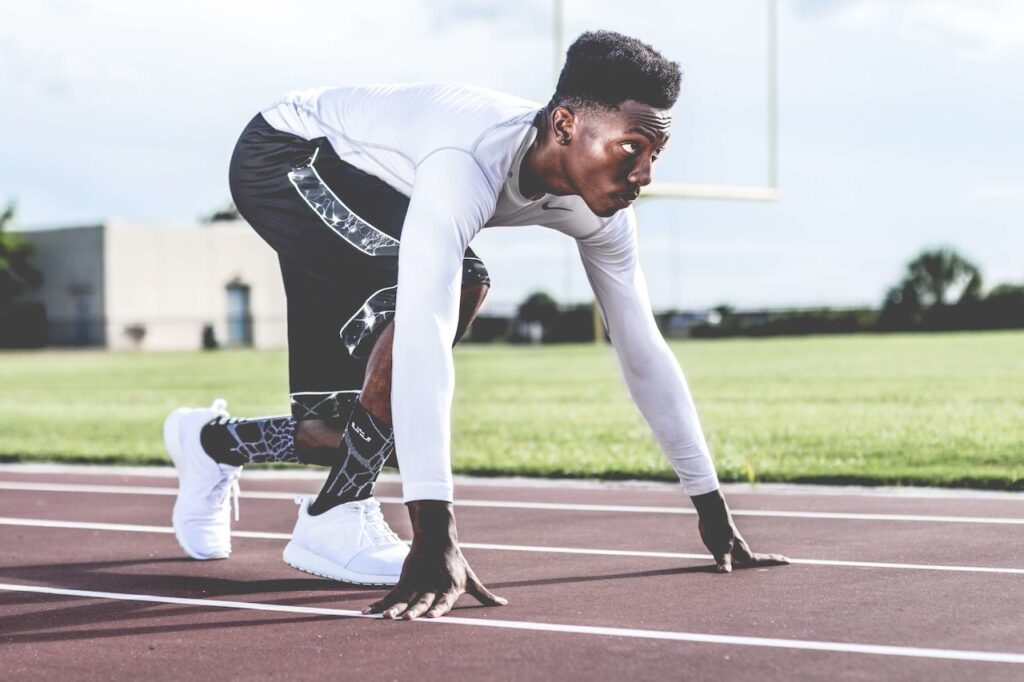The quest for performance-enhancing chemicals is never-ending and difficult for elite athletes and others who aspire to such heights. Supplements must adhere to anti-doping regulations, be safe, and preferably natural.
Enter CBD, also known as cannabidiol. CBD is currently causing a stir among athletes, who claim benefits such as faster recovery from injury, better sleep, and less muscle soreness.
Despite the fact that many organisations consider THC, cannabis’ other principal cannabinoid, to be an illegal substance, the World Anti-Doping Agency allows the use of pure CBD isolate. CBD is a non-intoxicating cannabinoid with anti-inflammatory, neuroprotective, anti-anxiety, and analgesic qualities that could be a game-changing legal supplement.
CBD products aimed at both recreational and elite athletes are already being used by athletes from a variety of sports. So, is there compelling proof that CBD can provide athletes with that elusive edge?

CBD may help athletes in a variety of ways, according to new research published in 2020.
Preclinical animal studies and clinical CBD trials in non-athlete groups were examined in a 2020 review published in Sports Medicine. The authors discovered that CBD has physiological, pharmacological, and psychological impacts that may be advantageous to athletes.
One of the review’s significant results is that CBD may help relieve inflammatory pain associated with tissue damage as well as neuropathic pain produced by nerve injury or irritation. This could be a significant benefit for endurance athletes because repetitive, long-distance workouts can cause inflammation and irritation in peripheral nerves.
According to the Sports Medicine study, CBD may protect against gastrointestinal harm. Athletes who participate in severe activity on a regular basis can impair oxygen and nutrient supply to their gastrointestinal (GI) tract.
Because of nausea, vomiting, and reduced nutrient intake, GI stress can have a deleterious impact on exercise performance and recovery. CBD has been found in preclinical studies to minimise tissue damage and restore intestinal permeability.
The authors above also provided evidence that CBD may support healthy bone deposition and aid in fracture healing. Athletes require healthy bones, and bone health can be harmed by traumatic injuries or insufficient energy availability.
According to the Sports Medicine analysis, CBD may also help athletes manage sports performance anxiety. Anxiety before a competition can affect food intake, cause sleep loss, and raise energy expenditure.
According to the review’s authors, investigations in non-athlete human groups have shown that CBD may reduce anxiety in stressful conditions. CBD may be even more beneficial when combined with psychological methods like cognitive behavioural therapy.
Another study, published in Pharmacological Research in 2020, assessed the validity and application of existing CBD research for athletes. These writers came to similar results, albeit with a little shift in focus.
CBD’s neuroprotective characteristics were singled out for their ability to mitigate the harm caused by a sports-related concussion. These concussions are classified as a mild traumatic brain injury and can result in long-term consequences such as neuronal damage.
The study’s authors highlight recent animal model research suggesting that CBD oil could help alleviate pain, aggressiveness, and depression associated with moderate traumatic brain injury. CBD oil also aided in the prevention of neuronal damage in the prefrontal cortex of the brain. The cannabinoid also reduces oxidative stress and neuroinflammation, providing further neuroprotective advantages.
These are encouraging discoveries because there are currently no viable pharmaceutical therapy for moderate traumatic brain damage. Repetitive traumatic brain damage, which is widespread in contact sports, can result in chronic neurodegenerative illnesses such chronic traumatic encephalopathy (CTE).
The 2020 Pharmacological Research study also highlighted CBD’s sleep-altering capabilities. CBD has been shown in animal studies to be both a sleep-inducing and a wake-promoting substance. This potential to induce opposite effects, known as biphasic effects, is dose dependent and appears to function best when the usual sleep-wake pattern is disrupted.
Lower CBD doses appear to encourage wakefulness, whilst larger CBD doses appear to sedate and usher in sleep. Both features may be advantageous: While getting a good night’s sleep before a big game is important, staying awake may be beneficial for athletes competing in ultramarathons or endurance competitions.
But, do any of these benefits come at the expense of on-field performance? Improved healing and sound sleep may sound appealing, but not if they come at the expense of reduced balance or coordination.
However, according to the Sports Medicine study, the answer is no. The researchers looked at clinical trials that looked at the influence of CBD on cognitive and psychomotor function and discovered that existing data suggests CBD is unlikely to have a negative impact on either in healthy people.
More data on human populations, as is generally the case in cannabis research, is required for more conclusive results. Both the Sports Medicine and Pharmacological Research studies’ authors stress the preliminary nature of their findings. While the existing evidence is intriguing, clinical study in athlete groups will provide more conclusive evidence of CBD’s value.
Fortunately, it appears that such research endeavours are already begun. Aurora Cannabis partnered with the UFC in 2019 to conduct clinical research on CBD, athlete wellness, and rehabilitation, and more research is on the way. More studies in this area are likely to emerge in the near future.